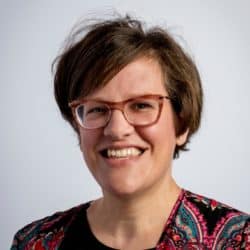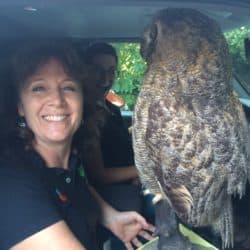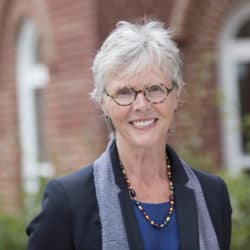As a way to mark the 150th anniversary of confederation, The Philanthropist profiled Canadians from across the non-profit sector and put a face to 150 individuals who work or volunteer in Canada’s social sector. As 2017 drew to a close, we published our final profile of 2017 — reaching our target of speaking with 150 people! The Philanthropist recognizes that Canada’s history did not begin 150 years ago. And it will continue beyond 150 years. In this spirit, we will continue to profile people in the non-profit sector throughout 2018.
Name: Jerica Fraser
Current role in the sector: Secondary school teacher, Indigenous Content Specialist for TVO, a steering committee member for the 4Rs Youth Movement, a mentor for Indspire, and a member of the Indigenous Advisory Committee for the Laidlaw Foundation.
Years working and/or volunteering in the non-profit sector: Six years.
What was your first job in the sector or a defining moment?
My first job was working at a non-profit Indigenous Head Start program, but in a secondary school position. I worked as a First Nations, Métis, and Inuit Engagement Worker to reengage Indigenous youth back into their education. My defining moment in this job was when a parent presented me with beadwork for helping her son get into college and applying for funding. It’s a moment that just reminds me about the importance of developing and maintaining relationships with youth, parents, families and communities and the difference you can make.
Describe your desk/workspace.
I have a desk, but rarely sit at it. In my classroom, we have our desks arranged in a circle and everyone sits at the table. I do this to disrupt the traditional power dynamic of a western classroom and to recognize that the circle is vital to Indigenous ways of being and living. We are all equal when we sit together in that circle.
What are you reading or following that has expanded your understanding of the non-profit sector?
I try to read as much as I can as a way to improve my practice and my perspectives. I am currently reading Braiding Sweetgrass by Robin Wall Kimmerer and recently read Colonized Classrooms: Racism, Trauma and Resistance in Post-secondary Education by Sheila Cote-Meek. I follow many Indigenous folks on Twitter who are actively fighting injustice, power/privilege dynamics and inequities in education. Twitter helps me get a pulse for what is happening outside my area and I am so grateful to all of the Indigenous folks who give their time to creating change through the platform.
What do you think our sector needs to be thinking about?
I think we need to be moving towards decolonizing institutions and ensuring that organizations have equitable and diverse hiring practices. It can be isolating for Black, Indigenous and people of colour to work within institutions that are still very colonial. An important way forward for the sector is to learn about what they don’t know first—learning the truth—without jumping to the end destination of reconciliation. There is no reconciliation, or truth for that matter, without creating and maintaining meaningful relationships with Indigenous peoples.
Do you know someone we should profile as part of this series? Email us at philanthropistprofiles@gmail.com


